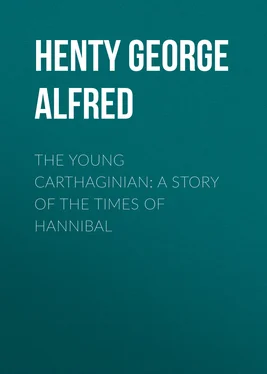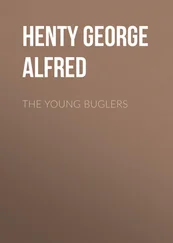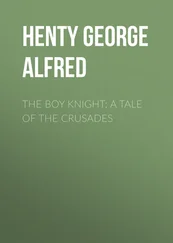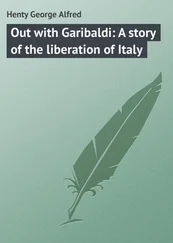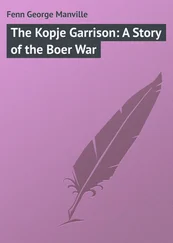George Henty - The Young Carthaginian - A Story of The Times of Hannibal
Здесь есть возможность читать онлайн «George Henty - The Young Carthaginian - A Story of The Times of Hannibal» — ознакомительный отрывок электронной книги совершенно бесплатно, а после прочтения отрывка купить полную версию. В некоторых случаях можно слушать аудио, скачать через торрент в формате fb2 и присутствует краткое содержание. Жанр: foreign_children, foreign_antique, foreign_prose, prose_military, на английском языке. Описание произведения, (предисловие) а так же отзывы посетителей доступны на портале библиотеки ЛибКат.
- Название:The Young Carthaginian: A Story of The Times of Hannibal
- Автор:
- Жанр:
- Год:неизвестен
- ISBN:нет данных
- Рейтинг книги:5 / 5. Голосов: 1
-
Избранное:Добавить в избранное
- Отзывы:
-
Ваша оценка:
- 100
- 1
- 2
- 3
- 4
- 5
The Young Carthaginian: A Story of The Times of Hannibal: краткое содержание, описание и аннотация
Предлагаем к чтению аннотацию, описание, краткое содержание или предисловие (зависит от того, что написал сам автор книги «The Young Carthaginian: A Story of The Times of Hannibal»). Если вы не нашли необходимую информацию о книге — напишите в комментариях, мы постараемся отыскать её.
The Young Carthaginian: A Story of The Times of Hannibal — читать онлайн ознакомительный отрывок
Ниже представлен текст книги, разбитый по страницам. Система сохранения места последней прочитанной страницы, позволяет с удобством читать онлайн бесплатно книгу «The Young Carthaginian: A Story of The Times of Hannibal», без необходимости каждый раз заново искать на чём Вы остановились. Поставьте закладку, и сможете в любой момент перейти на страницу, на которой закончили чтение.
Интервал:
Закладка:
On a bold hill at the head of the harbour stood the town. This hill rose from a wide lagoon, which communicated on one side with the sea, and was on the other separated from it only by a strip of land, four hundred yards wide. Through this a wide channel had been dug. Thus the hill, which was of considerable extent, rugged and precipitous, was isolated, and could only be attacked by sea.
The town was built in a sort of amphitheatre facing the sea, and was surrounded by a strong fortification two miles and a half in circumference, so that even should an assailant cross the lagoon, which in summer was nearly dry, he would have before him an almost impregnable defence to carry. Here, in buildings whose magnitude surprised the newcomers, acquainted as they were with the buildings of Carthage, were stored the treasures, the baggage, the ammunition of war, and the provisions of the army.
It had been the aim of the great Hamilcar, and of Hasdrubal after him, to render the army of Spain as far as possible independent of the mother country. They well knew how often the treasury of Carthage was empty owing to the extravagance and dishonesty of her rulers, and how impossible it would be to obtain thence the supplies required for the army. Therefore they established immense workshops, where arms, munitions of war, machines for sieges, and everything required for the use of the army were fabricated.
Vast as were the expenses of these establishments, the revenues of Iberia were amply sufficient not only to defray all the cost of occupation, but to transmit large sums to Carthage. These revenues were derived partly from the tribute paid by conquered tribes, partly from the spoils taken in captured cities, but most of all from the mines of gold and silver, which were at that time immensely rich, and were worked by the labour of slaves taken in war or of whole tribes subdued.
Some idea of the richness of these mines may be formed by the fact that one mine, which Hannibal had inherited from his father, brought in to him a revenue of nearly a thousand pounds a day; and this was but one of his various sources of wealth. This was the reason that Hamilcar, Hasdrubal, and Hannibal were able to maintain themselves in spite of the intrigues of their enemies in the capital. Their armies were their own rather than those of the country.
It was to them that the soldiers looked for their pay, as well as for promotion and rewards for valour, and they were able, therefore, to carry out the plans which their genius suggested untrammelled by orders from Carthage. They occupied, indeed, a position very similar to that of Wallenstein, when, with an army raised and paid from his private means, he defended the cause of the empire against Gustavus Adolphus and the princes of the Protestant league. It is true that the Carthaginian generals had always by their side two commissioners of the senate. The republic of Carthage, like the first republic of France, was ever jealous of her generals, and appointed commissioners to accompany them on their campaigns, to advise and control their movements and to report on their conduct; and many of the defeats of the Carthaginians were due in no small degree to their generals being hampered by the interference of the commissioners. They were present, as a matter of course, with the army of Hannibal, but his power was so great that their influence over his proceedings was but nominal.
The war which was about to break out with Rome is called the second Punic war, but it should rather be named the war of Hannibal with Rome. He conceived and carried it out from his own resources, without interference and almost without any assistance from Carthage. Throughout the war her ships lay idle in her harbour. Even in his greatest need Carthage never armed a galley for his assistance. The pay of the army came solely from his coffers, the material for the war from the arsenals constructed by his father, his brother-in-law, and himself. It was a war waged by a single man against a mighty power, and as such there is, with the exception of the case of Wallenstein, nothing to resemble it in the history of the world.
Passing through the narrow passage into the harbour the fleet sailed up to the end of the bay, and were soon alongside the spacious quays which had been erected. A large quantity of shipping already lay there, for the trade of Carthagena with the mother city and with the ports of Spain, Africa, and the East already rivaled that of Carthage. A group of officers were gathered on the quay as Hamilcar’s ship, which was leading the fleet, neared it, and Hamilcar exclaimed, “There is Hannibal himself!”
As the ship moored alongside the quay Hannibal came on board and warmly embraced his cousin, and then bestowed a cordial greeting upon Malchus.
“Why, cousin Malchus,” he said, “though it is but a year since I was in Carthage, I should scarce have known you, so much have you grown. I see you have entered the cavalry. That is well. You cannot begin too early to accustom yourself to war.”
Then turning, he went among the young men of the guard, to all of whom he was personally known, greeting them with a cordiality and kindness which greatly gratified them. Malchus gazed at him with admiration. Fortunately an accurate description of Hannibal has come down to us. He was one who, even at first sight, won all hearts by his lofty and noble expression, by the kindness and sincerity which his face expressed. The Carthaginians, as a race, were short, but Hannibal was very tall, and his great width of shoulders testified to his immense strength.
The beauty of the Carthaginian race was proverbial, but even among them he was remarkable. His head was well placed on his shoulders; his carriage was upright and commanding; his forehead lofty; his eye, though soft and gentle at ordinary times, was said to be terrible in time of battle. His head was bare. His hair, of a golden brown, was worn long, and encircled by a golden band. His nose was long and straight, forming, with the forehead, a perfect profile. The expression of the mouth was kind but firm. His beard was short. The whole contour of the face was noble in the extreme.
In battle he wore a helmet of bronze closely fitting the head, behind which projected a curved metal plate covering his neck. A band of gold surrounded the helmet; in front were five laurel leaves in steel; at the temples two leaves of the lotus of the same metal. On the crest, rising from an ornament enriched with pearls, was a large plume of feathers, sometimes red and sometimes white. A tuft of white horsehair fell from the plate behind. A coat of mail, made of a triple tissue of chains of gold, covered his body. Above this he wore a shirt of the finest white linen, covered to the waist by a jerkin of leather overlaid with gold plates. A large mantle of purple embroidered with gold hung from his shoulders. He wore sandals and leggings of red morocco leather.
But it was only on special occasions that Hannibal was thus magnificently clad. On the march he dressed generally in a simple blouse like that worn by his soldiers. His arms were borne behind him by an esquire. These consisted of his shield, of Galatian manufacture. Its material was bronze, its shape circular. In the centre was a conical, sharply pointed boss. The face of the shield was ornamented with subjects taken from the history of Carthage in relief. The offensive arms were a sword, a lance, and a bow with arrows. But it was not to the splendour of his appearance that Hannibal owed the enthusiasm by which he was regarded by his troops. His strength and skill were far superior to those of any man in his army. His food was as simple as that of his soldiers, he was capable of going for days without eating, and it was seldom that he broke his fast until the day’s work was over. When he ate it would be sitting on horseback, or as he walked about seeing to the needs of the soldiers.
Читать дальшеИнтервал:
Закладка:
Похожие книги на «The Young Carthaginian: A Story of The Times of Hannibal»
Представляем Вашему вниманию похожие книги на «The Young Carthaginian: A Story of The Times of Hannibal» списком для выбора. Мы отобрали схожую по названию и смыслу литературу в надежде предоставить читателям больше вариантов отыскать новые, интересные, ещё непрочитанные произведения.
Обсуждение, отзывы о книге «The Young Carthaginian: A Story of The Times of Hannibal» и просто собственные мнения читателей. Оставьте ваши комментарии, напишите, что Вы думаете о произведении, его смысле или главных героях. Укажите что конкретно понравилось, а что нет, и почему Вы так считаете.
